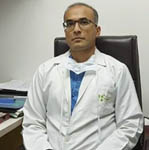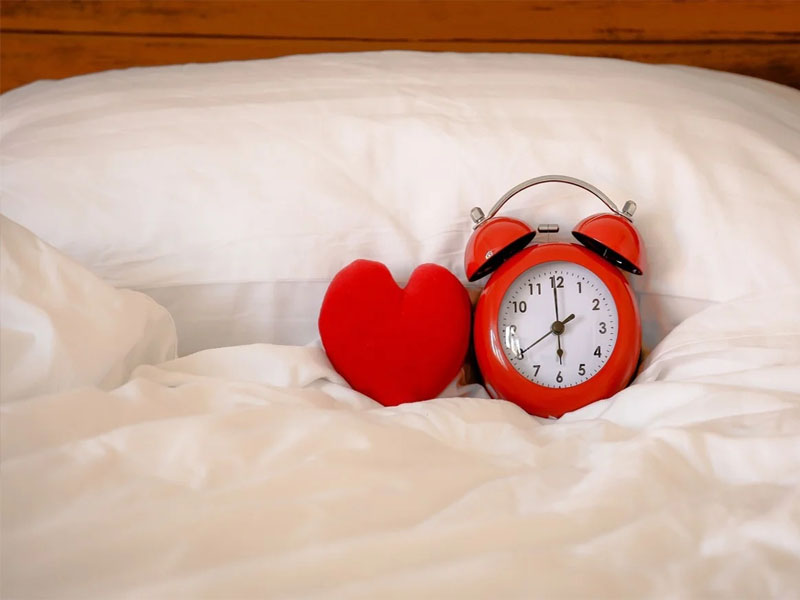It has been long known that adequate rest and sleep are essential to mental and physical well-being. The importance of sleep extends far beyond mere recovery from fatigue and exertion. Sleep has been known to exert positive effects on tissue and wound healing and even in helping the brain to process the entire gamut of neural inputs received throughout the day, a process akin to the “defragmentation” feature in modern computers. However, we shall be dealing with the importance of sleep in cardiovascular health. This aspect unfortunately, has been observed more in the breach than concurrence in our day and age. We live in an “always connected’ era where, being always available online (or offline), skimping on sleep and rest are part of the hustle culture and seen as a badge of honour or success (whichever yardstick may be used to qualify it!) The intense competition to get ahead of one’s peers and boost productivity has led us all down a path where sleep is often the first casualty, something that can be dispensed with, without incurring too much of a loss…or so we think. This has actually been accentuated by the Work From Home (WFH) culture, where an employee is expected to be always “on” no matter the time of day; after all, he/she is at home and expected to be in a relaxed environment and can easily attend to official work as and when required. Naturally, this has led to a major loss in sleep time, the ill effects of which are there for all to see.
THE “HUSTLE” CULTURE
The recent spate of young, successful celebrities suddenly dropping dead during an intense work out can be attributed at least partially to the growing phenomenon of “hustle” culture, that is, skimping on adequate sleep and rest, so as to get more work done, while displaying a macho, workaholic image. So it follows that a typical corporate honcho aged 35-50 will work or party till 2 am, grab 2-3 hours of forty winks, rise at dawn and hit the gym, all in an effort to prove his dedication and go getting nature. Unfortunately, this is precisely the age group that is witnessing a sudden spurt in cardiovascular diseases. I personally have performed coronary bypass surgeries on a large chunk of young patients, some as young as 28! While we must NOT oversimplify things by stating that lack of adequate sleep is to blame for the situation, it is certainly part of a multifactorial gamut that is wreaking havoc with such young productive lives.
EFFECTS OF SLEEP
There are already adequate data to suggest that lack of sleep adversely impacts cardiovascular health. But how much sleep do we consider as sufficient? The National Sleep Foundation of USA (2015) recommends 7-9 hours of good quality sleep per adult per night. This means a sleep devoid of any interruptions, in a dark or dimly lit area with comfortable ambient temperature. Many countries in the West, as also in India are witnessing a progressive decline in sleep times, mainly due to the factors stated above. The detrimental effects of inadequate sleep can be classified based on the impact on specific cardiovascular disorders.
HYPERTENSION
Hypertension is a well-known risk factor for various cardiovascular diseases. With regards to its relation with sleep duration, there has been shown to be a curvilinear correlation. That is, the prevalence of hypertension as a relation to sleep duration showed an uptick at both extremes of sleep duration. Put in simpler terms, there was a greater prevalence of hypertension in both those patients with low duration as well as a higher duration of sleep compared with the recommended levels (7-9 hours). A major US study found that those getting either <6 hours or >9 hours of sleep per night had a prevalence of hypertension of about 32%. This was in stark contrast to a prevalence of 23% in the population getting 8-9 hours of sleep. However, most studies have shown a more distinct correlation with a shorter sleep duration. The effects of shorter sleep duration on hypertension have also been found to be more pronounced in women for reasons that are still the subject of research.
CORONARY ARTERY DISEASE (CAD)
Epidemiological studies have shown a similar relationship as hypertension, between sleep and the incidence of CAD; a step rise at the extremes of sleep duration (<6 hours and >10 hours duration) with a minimal prevalence at the normal range of sleep.
Indeed, the importance of adequate sleep is also underlined by the incidence of death from any cause, which has also been found to be similarly distributed with a higher incidence at the extremes of the sleep duration curve; best life expectancy has been seen to be achieved by those habitually sleeping 7-8 hours a night.
An interesting parameter is the thickness of the lining of the carotid artery, that supplies the brain, called the Intima-Media Thickness (IMT). This is measured by a specialized form of ultrasound and is directly correlated with the incidence of CAD and brain stroke, an increasing value signifying a graver prognosis. The lowest thickness has been found in those subjects getting 7-8 hours of sleep a night.
CEREBROVASCULAR DISEASE/STROKE/BRAIN ATTACK
This group of disorders is responsible for a major chunk of disability and for deaths worldwide. Extensive studies have demonstrated increased vulnerability to cerebrovascular disease at both ends of the sleep duration spectrum.
POSSIBLE MECHANISMS
Although many potential pathways through which a lack of, or excess sleep may render persons more susceptible to cardiovascular diseases are under research, the most probable mechanism appears to be overactivity of the sympathetic nervous system. This part of our nervous system is responsible for regulating our blood pressure, heart rate and tone of the blood vessels. An overactivity of this pathway causes a surge in adrenaline levels, with multiple effects. Some of these are an increased heart rate, increased blood vessel tone, rise in blood sugar levels, etc. as is evident, the gamut of these responses are geared toward the ‘fight or flight” response to stress by the body.
Unfortunately, no such external stress actually exists, for which the body is readying itself to “fight or fly.” Such a state then becomes an underlying continuous state due to the habitual situation of sleep deprivation/excess. This leads to damage to our blood vessel walls, an increased load on the heart and a state of high baseline blood sugar levels, predisposing to diabetes mellitus, itself a major risk factor for heart disease.
Apart from this, our body’s natural rhythm, in response to the cycle of day and night also gets disrupted leading to hormonal imbalances which further contribute to the stress imposed on our cardiovascular system.
From the foregoing, it becomes abundantly obvious that along with hard work, work outs and vigorous physical activity, we also need to pay attention to our bodies’ need for adequate rest and sleep. This is especially true for our economically productive population, who are set to build a better future for our world. Hence it stands to reason that while hard work is doubtlessly important, rest and sleep are also of vital importance, for a healthy and fulfilling life ahead!
 |
Dr. Anirban Kundu, Senior Consultant Cardiac Surgeon, Shree Aggarsain International Hospital, New Delhi E Mail: dockundu@yahoo.com |


